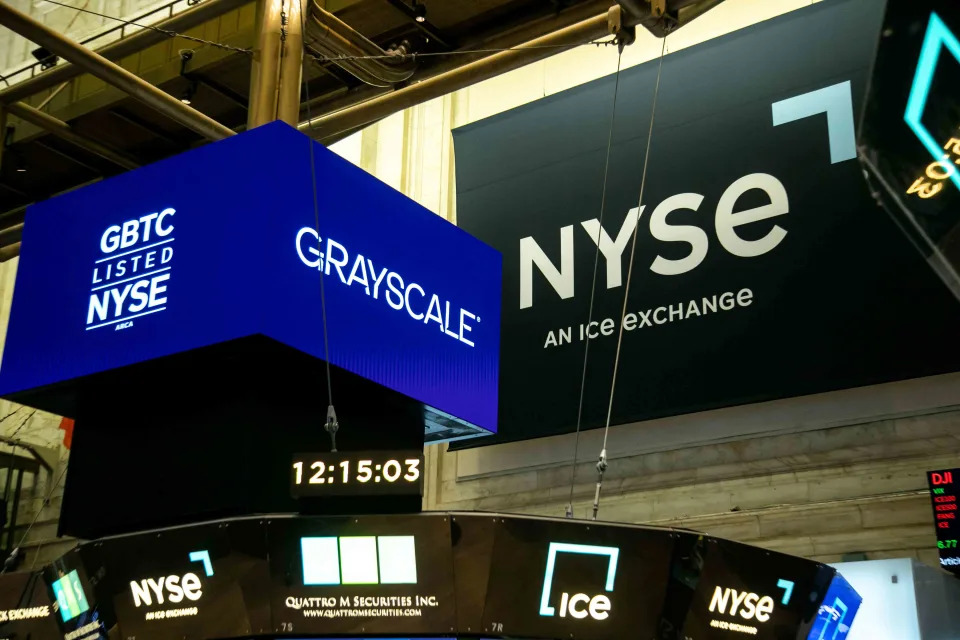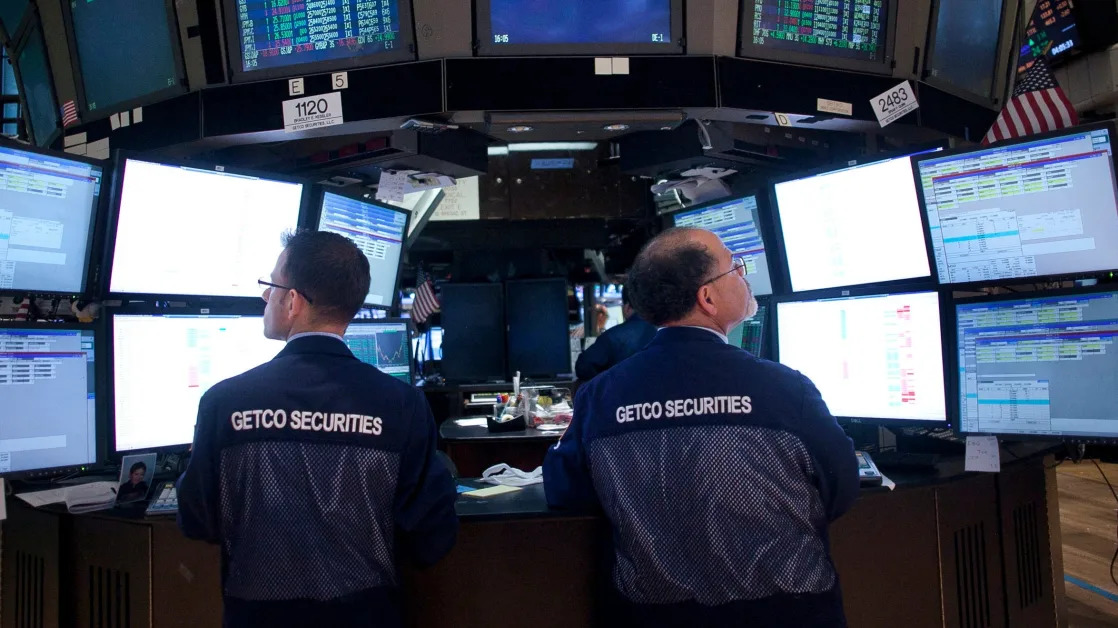Wall Street's stock sell-off intensified in a major way Monday as concerns mounted over the health of the US economy. The Dow Jones Industrial Average ( ^DJI ) fell over 1,000 points. The Nasdaq Composite ( ^IXIC ) was crushed by more than 3.4%. The S&P 500's ( ^GSPC ) losses cascaded nearly 3% in its worst day since 2022, capping its worst start to any month since 2002.
Wall Street's "fear gauge" — the CBOE Volatility Index ( ^VIX ) — touched its highest level since the early days of the COVID-19 pandemic, before retreating. Treasury yields fell, with the benchmark 10-year Treasury yield ( ^TNX ) hovering near 3.8%.
The global stock market rapidly sold off after Friday's lackluster US jobs report added to concerns about the economy and whether the Federal Reserve had waited too long to begin cutting interest rates. Of note, almost 100% of bets are on the central bank to cut rates by 0.5% by its September meeting, according to the CME FedWatch tool .
Some of the biggest companies in the stock market saw their values plummet. Apple ( AAPL ) declined about 5% amid the sell-off and news that Berkshire Hathaway ( BRK-B ) had cut its stake in the company in half. Nvidia ( NVDA ) pulled back over 6%. Tesla ( TSLA ) fell more than 4%.
Crypto also took a beating, with bitcoin ( BTC-USD ) sinking more than 10% to creep back toward the $54,000 level.
The concerns spread throughout the world, as well. Traders in Asia greeted the week with a similar sell-off, as Japan's Nikkei 225 ( ^N225 ) was routed by more than 12% in its biggest-ever daily loss after a surprise interest rate hike from the Bank of Japan last week.
The sharp rise in the Japanese yen against the US dollar has spurred heavy selling as speculators who had borrowed money at Japan's near-0% interest rate to buy US risk assets have been liquidating their holdings.
The US market is headed into a quieter week of data and earnings. With the jobs market still in focus, weekly unemployment claims due Thursday will take a bigger spotlight than usual.





